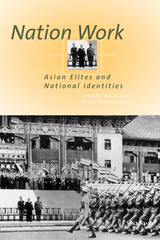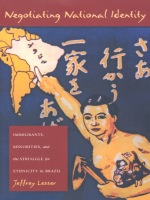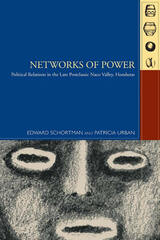104 books about Elite (Social sciences) and 4
start with N
104 books about Elite (Social sciences) and 4
104 books about Elite (Social sciences)
4 start with N start with N
4 start with N start with N

Nation Work
Asian Elites and National Identities
Timothy Brook and Andre Schmid, Editors
University of Michigan Press, 2000
As increasing attention is drawn to globalization, questions arise about the fate of "the nation," a political and social unit that for centuries has seemed the common-sense way to organize the world. In Nation Work, Timothy Brook and André Schmid draw together eight essays that use historical examples from Asian countries--China, India, Korea, and Japan--to enrich our understandings of the origin and growth of nations.
Asia provides fertile ground for this inquiry, the volume argues, because in Asia the history of the modern nation has been inseparable from global influences in the form of Western imperialism. Yet, while the impetus for building a modern national identity may have come from the need to fashion a favorable place in a world system dominated by Western nations, those engaged in nationalist enterprises found their particular voices more often in relation to tensions within Asia than in relation to more generic tensions between Asia and the West.
With topics ranging from public health measures in nineteenth-century Japan through textual scholarship of Tamil intellectuals, the willful division of Korea's history from China's, the development of China's cotton industry, and the meaning of "postnational-ism" for Chinese artists, the essays reveal the fascinating array of sites at which nation work can take place.
This will be essential reading for historians and social scientists interested in Asia.
Timothy Brook is Professor of History, Stanford University. André Schmid is Assistant Professor of East Asian Studies, University of Toronto.
Asia provides fertile ground for this inquiry, the volume argues, because in Asia the history of the modern nation has been inseparable from global influences in the form of Western imperialism. Yet, while the impetus for building a modern national identity may have come from the need to fashion a favorable place in a world system dominated by Western nations, those engaged in nationalist enterprises found their particular voices more often in relation to tensions within Asia than in relation to more generic tensions between Asia and the West.
With topics ranging from public health measures in nineteenth-century Japan through textual scholarship of Tamil intellectuals, the willful division of Korea's history from China's, the development of China's cotton industry, and the meaning of "postnational-ism" for Chinese artists, the essays reveal the fascinating array of sites at which nation work can take place.
This will be essential reading for historians and social scientists interested in Asia.
Timothy Brook is Professor of History, Stanford University. André Schmid is Assistant Professor of East Asian Studies, University of Toronto.
[more]

Negotiated Power
The State, Elites, and Local Governance in Twelfth- to Fourteenth-Century China
Sukhee Lee
Harvard University Press, 2014
The internal dynamics driving the relationship between the state and local society during the Southern Song and Yuan dynasties has both captivated and baffled scholars. In this book, Sukhee Lee posits an alternative understanding of the relationship between the state and social elites in the middle period of Chinese imperial history. Directly challenging the assumption of a zero-sum competition between the power of the state and that of local elites, Negotiated Power shows in vivid detail how state power and local elite interests were mutually constitutive and reinforcing. It was precisely the connectedness of social elites to the state, as well as the presence of the state in local life, that was essential to the rise of a self-conscious local elite society during this period. In probing the historical trajectory of Mingzhou prefecture (today’s Ningbo), Lee makes extensive use of local gazetteers from the Southern Song and the Yuan dynasties, and the abundant literary collections that still survive from this area, including some 280 epitaphs written for Mingzhou people of the time.
[more]

Negotiating National Identity
Immigrants, Minorities, and the Struggle for Ethnicity in Brazil
Jeffrey Lesser
Duke University Press, 1999
Despite great ethnic and racial diversity, ethnicity in Brazil is often portrayed as a matter of black or white, a distinction reinforced by the ruling elite’s efforts to craft the nation’s identity in its own image—white, Christian, and European. In Negotiating National Identity Jeffrey Lesser explores the crucial role ethnic minorities from China, Japan, North Africa, and the Middle East have played in constructing Brazil’s national identity, thereby challenging dominant notions of nationality and citizenship.
Employing a cross-cultural approach, Lesser examines a variety of acculturating responses by minority groups, from insisting on their own whiteness to becoming ultra-nationalists and even entering secret societies that insisted Japan had won World War II. He discusses how various minority groups engaged in similar, and successful, strategies of integration even as they faced immense discrimination and prejudice. Some believed that their ethnic heritage was too high a price to pay for the “privilege” of being white and created alternative categories for themselves, such as Syrian-Lebanese, Japanese-Brazilian, and so on. By giving voice to the role ethnic minorities have played in weaving a broader definition of national identity, this book challenges the notion that elite discourse is hegemonic and provides the first comprehensive look at Brazilian worlds often ignored by scholars.
Based on extensive research, Negotiating National Identity will be valuable to scholars and students in Brazilian and Latin American studies, as well as those in the fields of immigrant history, ethnic studies, and race relations.
Employing a cross-cultural approach, Lesser examines a variety of acculturating responses by minority groups, from insisting on their own whiteness to becoming ultra-nationalists and even entering secret societies that insisted Japan had won World War II. He discusses how various minority groups engaged in similar, and successful, strategies of integration even as they faced immense discrimination and prejudice. Some believed that their ethnic heritage was too high a price to pay for the “privilege” of being white and created alternative categories for themselves, such as Syrian-Lebanese, Japanese-Brazilian, and so on. By giving voice to the role ethnic minorities have played in weaving a broader definition of national identity, this book challenges the notion that elite discourse is hegemonic and provides the first comprehensive look at Brazilian worlds often ignored by scholars.
Based on extensive research, Negotiating National Identity will be valuable to scholars and students in Brazilian and Latin American studies, as well as those in the fields of immigrant history, ethnic studies, and race relations.
[more]

Networks of Power
Political Relations in the Late Postclassic Naco Valley
Edward Schortman
University Press of Colorado, 2011
Little is known about how Late Postclassic populations in southeast Mesoamerica organized their political relations. Networks of Power fills gaps in the knowledge of this little-studied area, reconstructing the course of political history in the Naco Valley from the fourteenth through early sixteenth centuries.
Describing the material and behavioral patterns pertaining to the Late Postclassic period using components of three settlements in the Naco Valley of northwestern Honduras, the book focuses on how contests for power shaped political structures. Power-seeking individuals, including but not restricted to ruling elites, depended on networks of allies to support their political objectives. Ongoing and partially successful competitions waged within networks led to the incorporation of exotic ideas and imported items into the daily practices of all Naco Valley occupants. The result was a fragile hierarchical structure forever vulnerable to the initiatives of agents operating on local and distant stages.
Networks of Power describes who was involved in these competitions and in which networks they participated; what resources were mustered within these webs; which projects were fueled by these assets; and how, and to what extent, they contributed to the achievement of political aims.
Describing the material and behavioral patterns pertaining to the Late Postclassic period using components of three settlements in the Naco Valley of northwestern Honduras, the book focuses on how contests for power shaped political structures. Power-seeking individuals, including but not restricted to ruling elites, depended on networks of allies to support their political objectives. Ongoing and partially successful competitions waged within networks led to the incorporation of exotic ideas and imported items into the daily practices of all Naco Valley occupants. The result was a fragile hierarchical structure forever vulnerable to the initiatives of agents operating on local and distant stages.
Networks of Power describes who was involved in these competitions and in which networks they participated; what resources were mustered within these webs; which projects were fueled by these assets; and how, and to what extent, they contributed to the achievement of political aims.
[more]
READERS
Browse our collection.
PUBLISHERS
See BiblioVault's publisher services.
STUDENT SERVICES
Files for college accessibility offices.
UChicago Accessibility Resources
home | accessibility | search | about | contact us
BiblioVault ® 2001 - 2024
The University of Chicago Press









